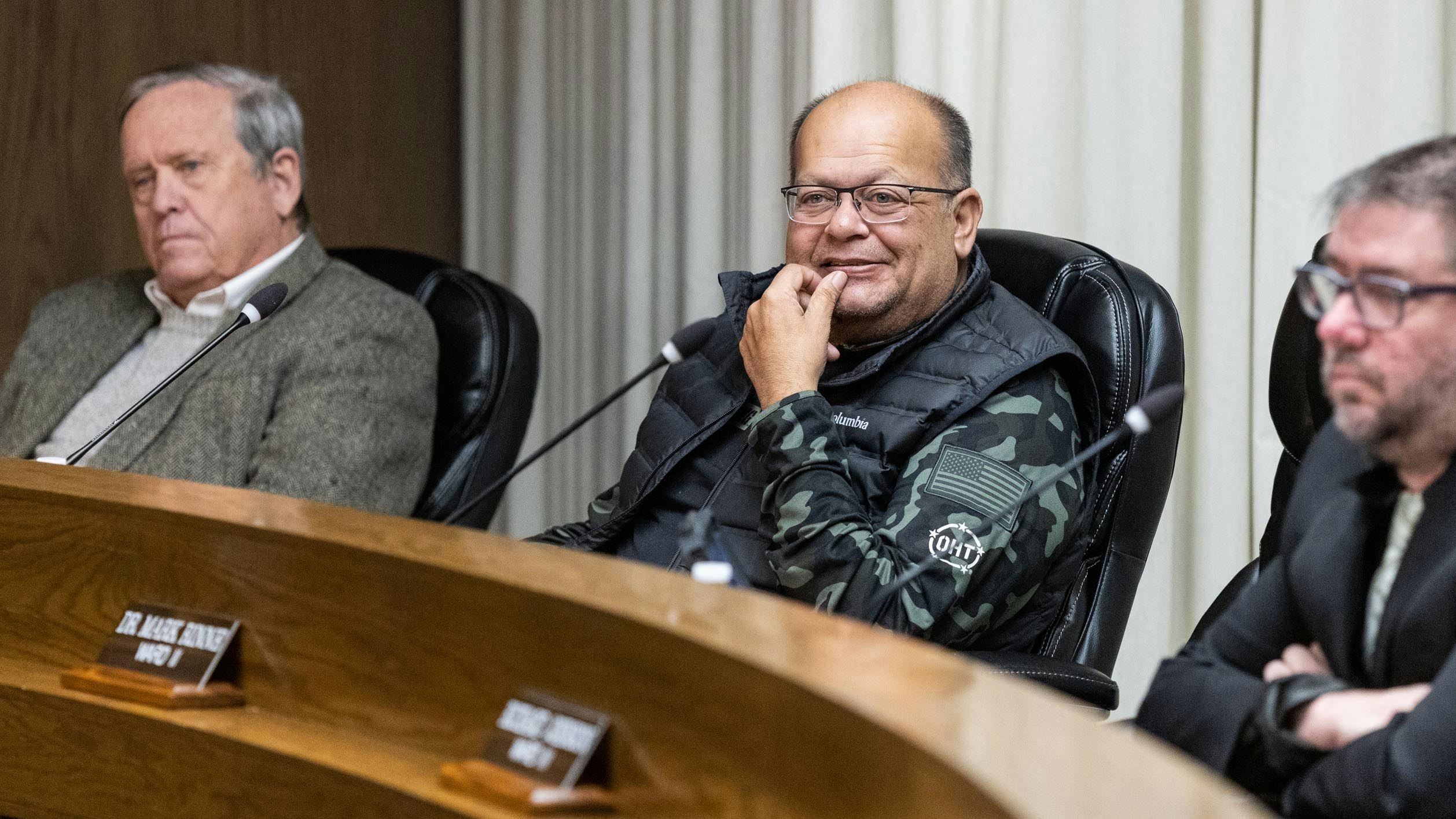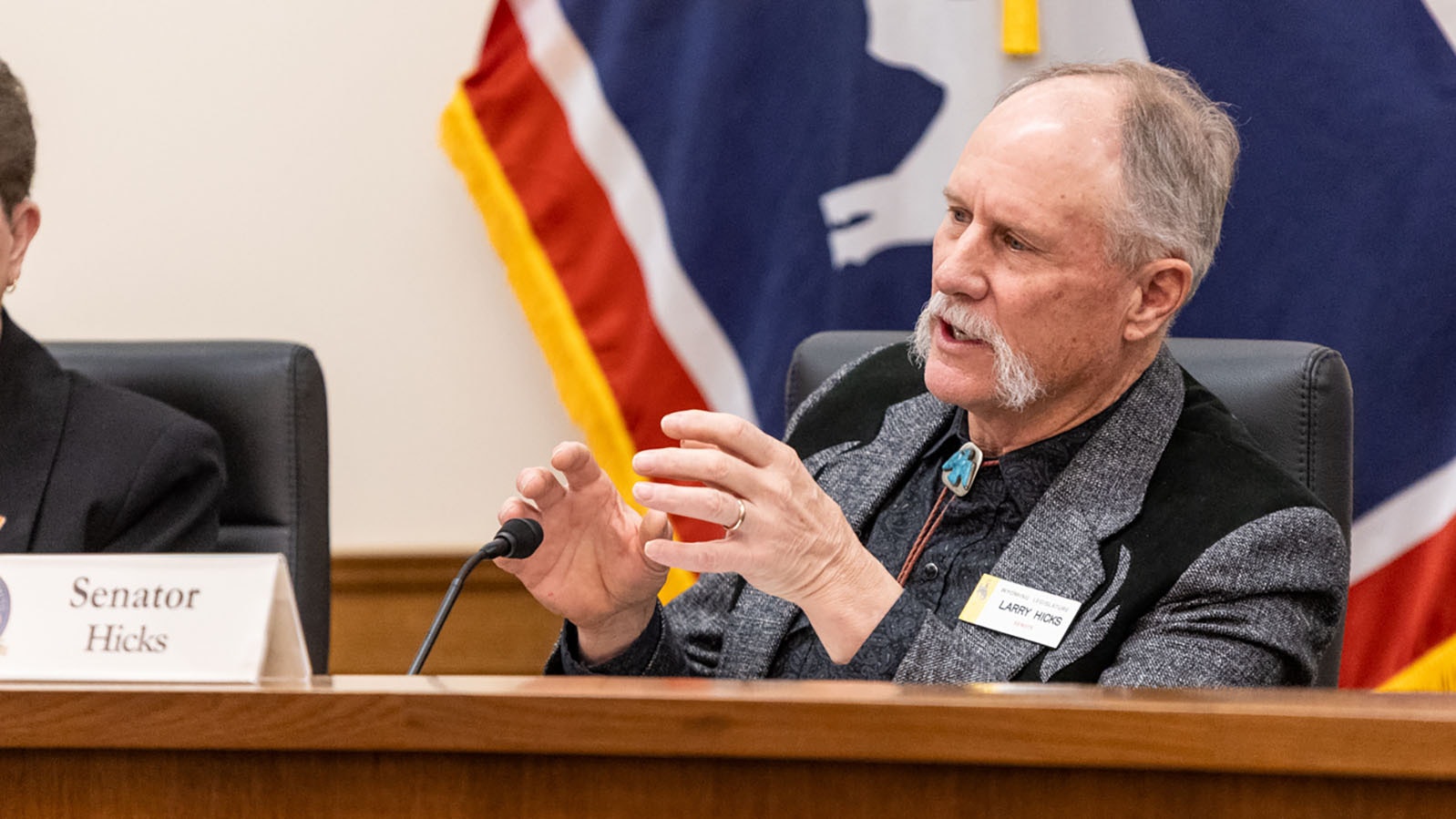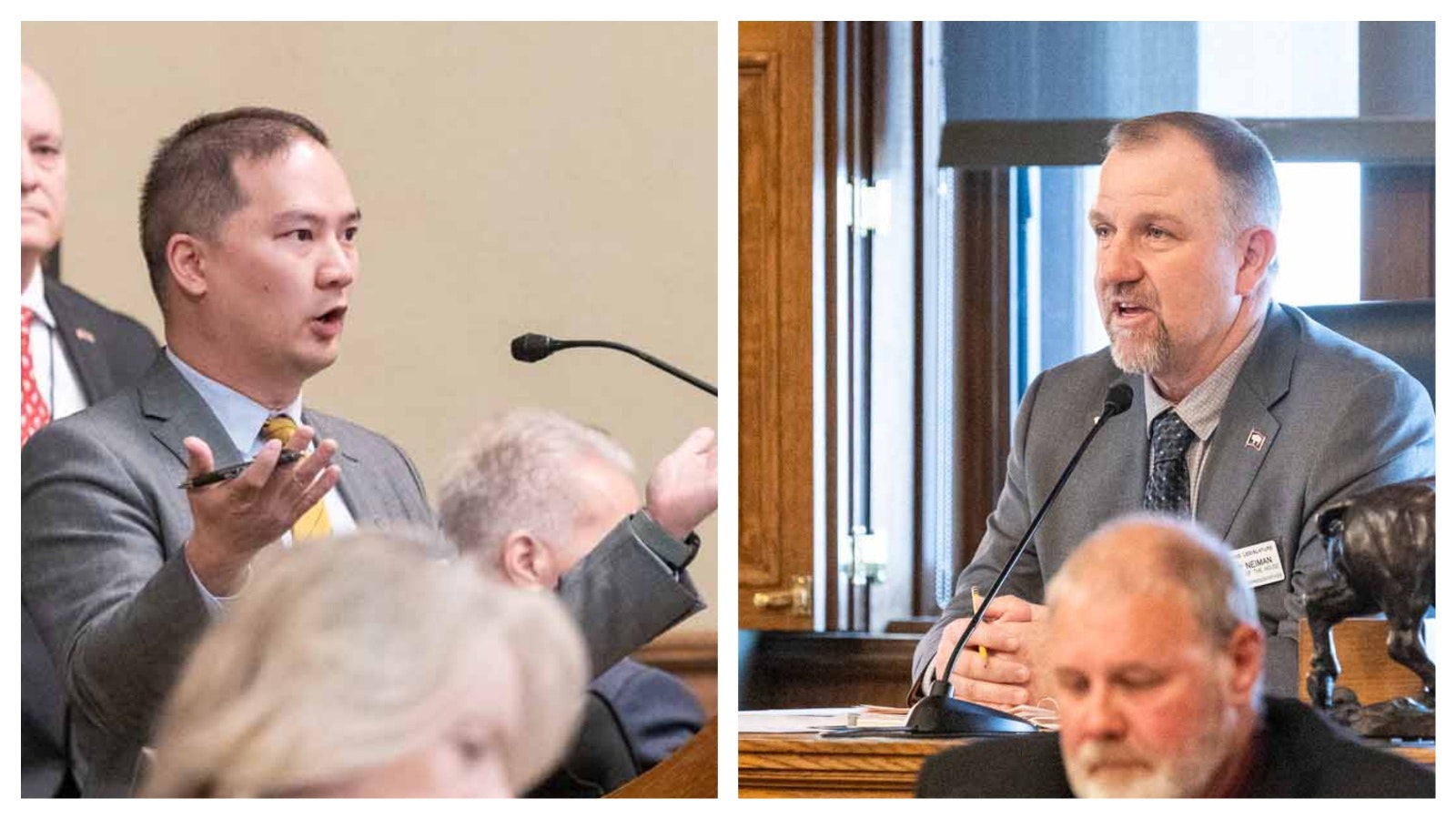A proposal to decriminalize marijuana was soundly defeated for the second and final time by the Cheyenne City Council on Monday night.
The council voted 6-3 to reject a proposal that would have repealed and amended a city ordinance that prohibits marijuana possession. With the rejection, the proposed change is officially dead.
Under the proposed change, people found in the possession of marijuana in the city would not be ticketed, but still could have faced charges in state or federal courts.
In many ways, even if approved, the proposal was mostly symbolic. The Cheyenne City Council was the first in Wyoming to discuss decriminalization at its meeting last week, where it was rejected 5-2.
During that meeting, Cheyenne Police Chief Mark Francisco indicated his department would still enforce current marijuana laws and would send citations associated with those cases to state or federal courts instead of municipal.
At Monday’s meeting, the decriminalization push gained a vote in City Council President Richard Johnson, who didn’t vote on it last week. That was countered by Mayor Patrick Collins, who opposed it.
The Debate
Johnson told Cowboy State Daily earlier this month his primary motivation to propose decriminalization is to save Wyoming’s capital city money on superfluous fines and attorney fees.
Councilwoman Michelle Aldrich expressed concern at both meetings that decriminalizing pot would put young adults at a higher risk for felonies.
She said legislation passed by this year’s Legislature would make young adults more likely to receive a felony. But the legislation most closely resembling what Aldrich refers to only relates to those who receive a fifth misdemeanor for theft, which will now become a felony under the new law.
This could also be confused with current law in Wyoming that says those receiving a third conviction for marijuana possession will receive a felony and face up to five years in prison and up to $5,000 in fines.
Aldrich said it is her understanding municipal citations do not always count toward the felony threshold for possession of controlled substances, so passing the ordinance could have theoretically increased the rate of felonies issued.
Another difference between being charged in municipal or state court is that in municipal court, a defendant can typically pay a ticket and not have to appear before a judge and take time off work. In district court, this isn’t an option.
“As a city government, we don’t have officers tied up in court rather than on the street or doing their daily work while waiting for arraignments,” Aldrich told Cowboy State Daily.
The Cheyenne decriminalization would have only applied to those in possession of a non-felony amount of marijuana. Those found with more than 3 ounces of marijuana in Wyoming are charged with a felony.
Passing The Buck?
Bennett Sondeno, director of Wyoming NORML, a marijuana advocacy group, told Cowboy State Daily that lawmakers are passing the buck on the issue of marijuana decriminalization and legalization.
“It seemed like the majority of the council said they expect the marijuana laws to change at some point in this state and that the dominos are falling,” Sondeno said. “I think that they’re seeing that, but all of these politicians want to point to someone else to take care of it.
“It’d be nice to see them push the change rather than following the narrative.”
A 2020 University of Wyoming poll found that 85% of residents support legalizing medical marijuana, while 75% support decriminalization of the substance.
A few state legislators weighed in on the topic when it was discussed during the council’s committee of the whole meeting last week.
Time For State To Weigh In?
State Rep. Daniel Singh, R-Cheyenne, offered support for decriminalization. Singh told Cowboy State Daily he would be open to discussing this issue at the Legislature.
Fellow Cheyenne Republican state Rep. Ben Hornok opposed the measure at both meetings, saying it was unconstitutional for the city to subvert state law.
A number of cities around the country have decriminalized marijuana in states where it is illegal at a state level, and Cheyenne City Attorney Stefanie Boster said last week she believes Hornok’s argument is incorrect. Since 2012, 120 municipalities in 12 states have passed decriminalization ordinances.
Members of the public spoke at both meetings in support of the ordinance change, but far fewer testified Monday.
Cheyenne resident AJ Gold took his support one step further, saying legalization of marijuana needs to be addressed at the state level.
“We would benefit so much from it, not only just with the money we will get from it, but the jobs we will create,” he said.
Cody resident Richard Jones has started an organization called Wyoming Citizens Against Normalization, which he describes as an effort “dedicated to counter the decades of well-financed propaganda promoted by the addiction-for-profit marijuana industry.”
Jones opposed the proposed Cheyenne ordinance.
“I’m against this ordinance because of its legal and practical flaws, but I also oppose it because it furthers the normalization of marijuana and contributes to a lessened perception of harm from this increasingly dangerous drug,” he told Cowboy State Daily.
Movement Not Dead
Wyoming NORML recently engaged in a campaign to have two proposed cannabis ballot measures brought to voters on the 2024 state ballot. Those efforts fell short, but not by a large margin.
Sondeno said his staff gathered nearly enough raw signatures for the state thresholds and the required amount of signatures in 14 of Wyoming’s 23 counties. Wyoming law says that signatures must be gathered from 15% of a county’s residents in at least two-thirds, or 16, of the state’s counties.
Sondeno’s organization has requested that legalizing and decriminalizing marijuana be brought up as part of the Legislature’s interim topics. Because of the upcoming regular session being a budget session, Sondeno said he doesn’t expect these topics to be brought up until summer 2024.
Wyoming NORML has already crafted draft legislation for both the decriminalization and legalization of medical marijuana. The decriminalization draft would remove all felony charges for possession of marijuana and all associated penalties involving jail and prison time.
“We want to stop putting people in jail for this and wasting taxpayer money,” he said.
Sondeno said his organization plans to hire professional petitioners, which he believes will help achieve the group’s goal of getting enough signatures to put a question to voters.
He said it is unlikely it will be on the 2024 ballot, but feels confident about 2025.





